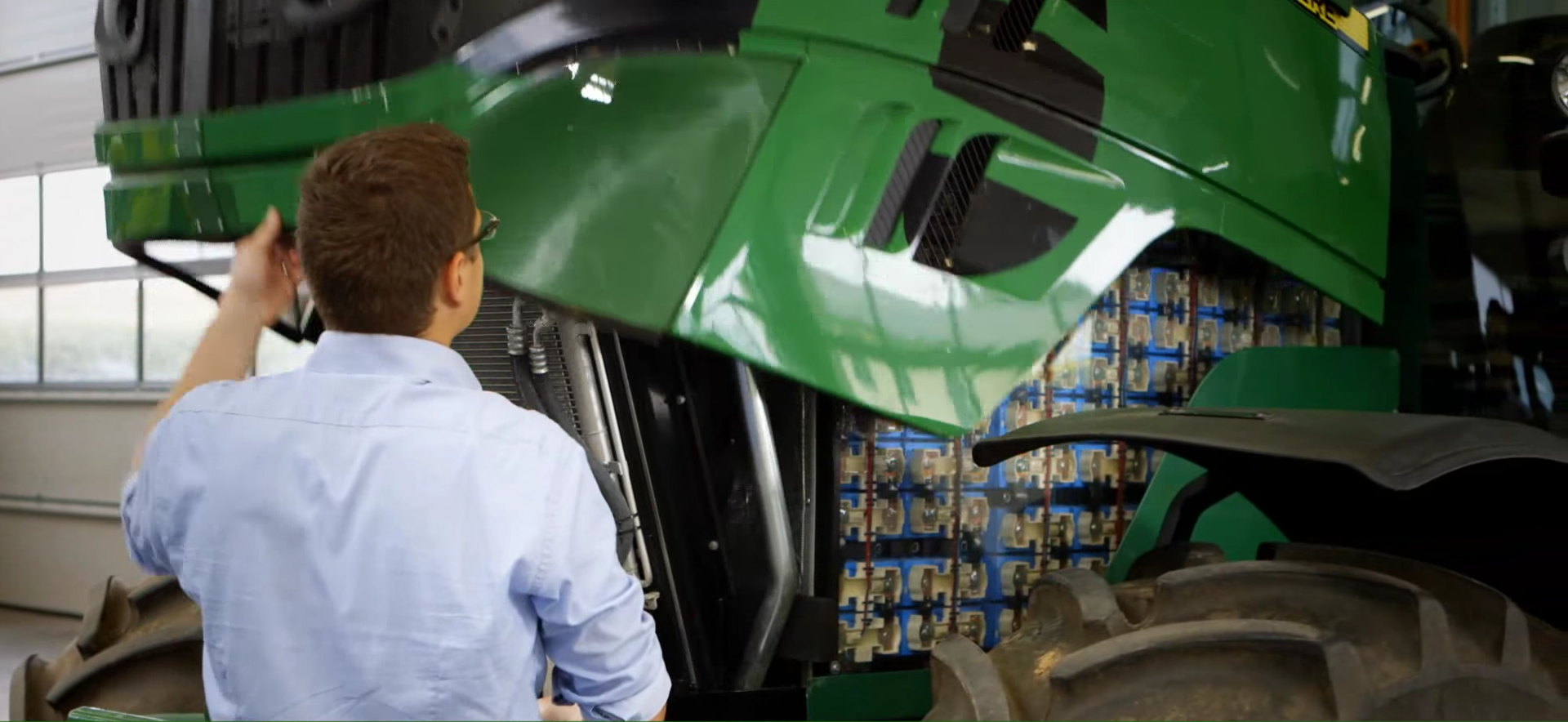
Farms could become key players in the generation, storage and supply of renewable transport electricity and fuel in rural areas, as well as supplying decentralised power networks, according to a new study.
An industry-led ‘task and finish’ group could lead to trials of new electric and autonomous vehicles operating in farm and rural situations.
The initiative could also identify how local grid technologies, battery storage and ‘vehicle to grid’ (V2G) systems can come together to make this happen.
This is according to a new report looking a the opportunities and challenges of V2G technologies on farms.
It comes as there is a greater need for localised renewable energy in light of the government’s target to ban diesel and petrol vehicles by 2040.
Leading the initiative is the NFU, alongside Warwickshire transport specialist Greenwatt and the AHDB, which will investigate the practicalities of linking farm-generated renewable electricity and innovative transport technologies.
Jonathan Scurlock from the NFU said: “We are exploring the opportunity for rural vehicle-to-grid (V2G) trials involving electric tractors and other off-road agricultural machinery, as well as highlighting the potential challenges of vehicles charging from often weak rural electricity networks.
“Farm machinery manufacturers, electric vehicle specialists and battery storage experts, as well as university and government research bodies, are all participating with the common purpose of adding value to farm-generated renewable electricity.”
Mike Woollacott, of Greenwatt Technology, is a co-coordinator of the V2G Task and Finish group and is positive about the future.
Mr Woollacott said: “Farms are perfectly placed to be pivotal in the generation, storage and supply of renewable electricity enabling much greater deployment of electric vehicles on our farms, horticultural and forestry businesses.
“Smarter farming will mean the adoption of battery powered and sometimes driverless vehicles on our farms,” he said.
Mr Woollacott added that as the National Grid decentralises, the UK will need to demonstrate the practicalities of integrating the generation, storage and use of renewable energy as a clean and locally accessible source of transport fuel for rural businesses and communities.
